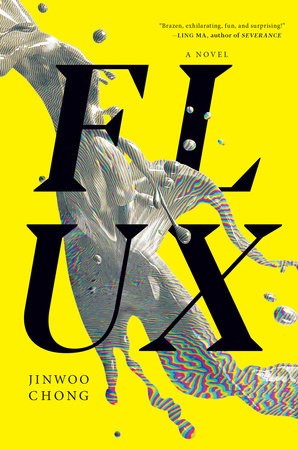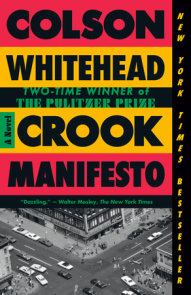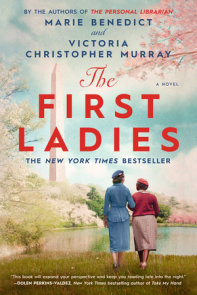READERS GUIDE
FLUXJinwoo Chong
Hardcover 978-1-68589-034-6
eBook 978-1-68589-035-3
“Brazen, exhilarating, fun, and surprising! I couldn’t predict where this novel was going, but I was definitely along for the ride.” —Ling Ma, author of Severance
Flux happily offers a moving appraisal of lives buffeted by personal and systemic traumas; a deep dive into the good, the bad and the ugly of self-serving corporate culture; and no shortage of ‘wait, what the heck just happened?’ thrills.” — The New York Times Book Review
INTRODUCTION
A blazingly original and stylish debut novel about a young man whose reality unravels when he suspects his mysterious employers have inadvertently discovered time travel—and are using it to cover up a string of violent crimes . . .
Flux is a haunting and sometimes shocking exploration of the cyclical nature of grief, of moving past trauma, and of the pervasive nature of whiteness within the development of Asian identity in America.
CONVERSATION STARTERS
1. How does Raider play into the story of Flux? Do you think it would have been as influential to the story if it were a different genre of television? Do Raider’s mysteries mirror Bo’s in any way?
2. Io tells “The Parable of the Friend in the Night” (174), citing persistence as a virtue. How can persistence help someone? How can it hurt someone, like it did Io?
3. Early on, Brandon mentions that Raider was one of the first instances of Asian representation on TV, noting, “Don’t forget the fact that Raider was one of the only shows putting Asians on TV. By season two you were almost exclusively among us, the shopkeepers and immigrants. We said more than unsubtitled Cantonese, we played more than kung fu masters or dragon assassins” (5). How does being Asian define Bo’s actions throughout the story? Do you think Bo saw himself in Moto?
4. Brandon refers to Kaz as having “no job, dirtbag friends, points and parole, but he was, in fact, free. He was, in fact, good,” (256). How does this compare to Brandon’s life and his view of himself?
5. What similarities can you find between Io Emsworth/Flux and tech companies today? Io is described as “Flux’s founder, billionaire for the span of thirteen months before investors bailed, now tried and living out a sentence of life in prison for the deaths of three employees approximately twenty years ago” (35-37). Could you see this happening to any of the tech moguls of today? What companies today thrive under false advertising?
6. Regarding Hadrien, Antonin Haubert’s son, Min remarks, “As if anybody needed reasons why nepotism is poisonous. Just waves and waves of generational wealth propping these people up until they don’t even understand what they’re doing is wrong” (97). What commentary is Chong making here about nepotism babies/children? Do you have examples of nepotism children today that have made successful careers even if their parents have poor public opinion?
7. After starting at Flux, Brandon says, “‘This doesn’t make any sense … What did you hire me for, Lev?’” And Lev replies, “‘If I give you what you want, does it matter?’” (136). After finishing the book, how do you interpret this interaction? Would you work for a company without knowing their true intentions if it meant access to anything you could ever want? Where is the moral and ethical line?
8. Why do you suppose Bo kept visiting Lev––monthly for ten years––despite the fact that Lev was really the one behind Flux’s lies and manipulation? Io was the figurehead, but Lev was the brains. What do you think compelled Bo not to throw Lev under the bus with Io?
9. Brandon struggles with his love for his favorite TV show after the lead actor’s violence against his ex-wife and coworkers is exposed, saying, “[The] idea that we should just dissociate from something that big, like a show, with so many moving parts and other actors and writers and producers who are probably really proud of what they did there and what it means to so many people, doesn’t sit right with me. It’s not fair to everybody else” (106). What are instances in your own life where you have struggled to justify a piece of media because of something the actor/artist did, or vice versa? Are there ways to separate the art from the artist, the character from the actor?
10. Jem is a key factor in Brandon breaking the time loop. The alarm, “Try the one percent,” is the eventual trigger. How does Chong’s use of time travel differ from other media representations of it? Did the three timelines and points of view help you understand the loop, or make it harder? Why do you think Brandon used Jem as the trigger point for his younger self?
ABOUT THE AUTHOR
Jinwoo Chong’s short stories have appeared in The Southern Review, Chicago Quarterly Review, and Salamander. Flux is his first novel. He lives in New York.
MORE TO DISCOVER
Find more resources for your book club at www.mhpbooks.com.






















